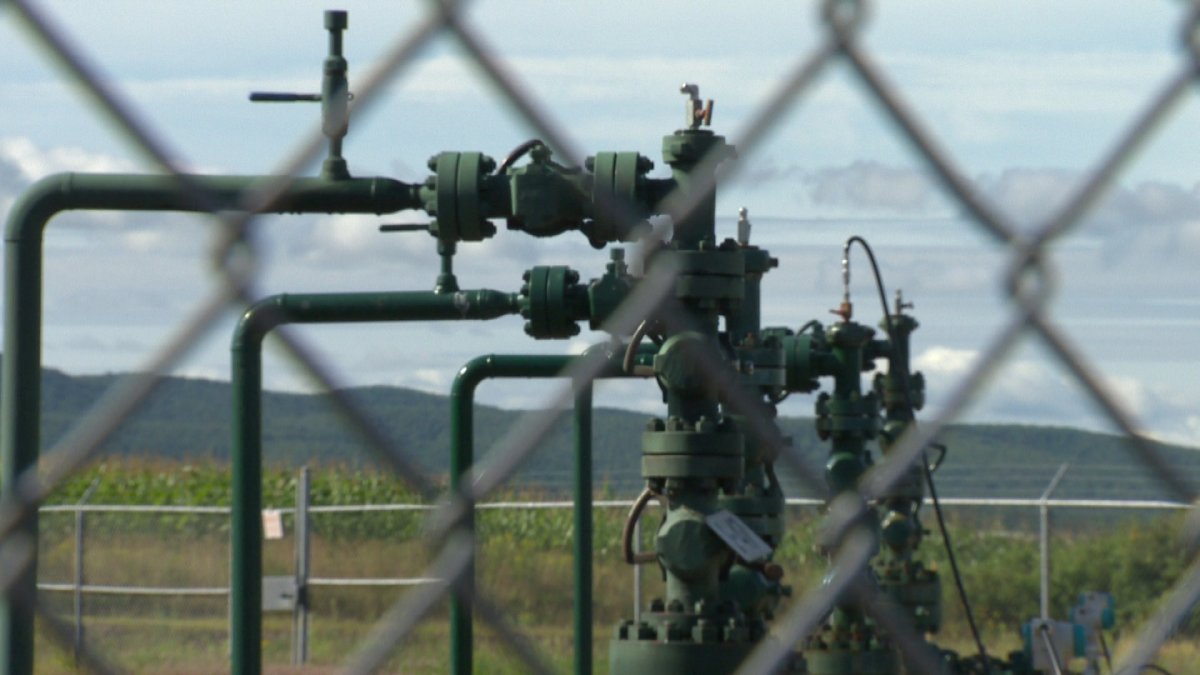FREDERICTON – A commission that’s examining the issue of hydraulic fracturing for shale gas in New Brunswick says it is deeply concerned about the quality of life in the province.

“We share our fellow New Brunswickers’ worries about what the future holds,” the commissioners wrote in a new discussion paper. “We are most interested in understanding this complex issue from a citizen’s perspective.”
The three-member commission was appointed in March and is now seeking pubic input. It has published the discussion paper and launched a website that details its work, including submissions, research documents and lists of who commission members have met with.
The commission is in Pennsylvania this week at the invitation of Penn State University to examine the shale gas industry there.
“We’re looking at the industry — the good, the bad and the ugly — and getting a sense of what the impact has been,” commission member John McLaughlin said Monday in an interview.
New Brunswick’s Liberal government imposed a moratorium on fracking until five conditions can be met, which includes a plan for regulations, waste-water disposal, a process to consult First Nations and a royalty structure.
The previous Progressive Conservative government said the industry would provide jobs and revenues that are needed to bolster the provincial economy, while the Liberals have maintained more information is needed before it can proceed.
The commission consists of McLaughlin, a former president of the University of New Brunswick, Marc Leger, former clerk of the executive council, and Cheryl Robertson, a former chairwoman of the board at the New Brunswick Community College.
- Budget 2024 failed to spark ‘political reboot’ for Liberals, polling suggests
- Train goes up in flames while rolling through London, Ont. Here’s what we know
- Peel police chief met Sri Lankan officer a court says ‘participated’ in torture
- Wrong remains sent to ‘exhausted’ Canadian family after death on Cuba vacation
The discussion paper says while other jurisdictions have created technical panels, this commission is a citizens’ panel.
“We are most interested in examining the potential benefits, risks, opportunities and challenges shale gas offers New Brunswick communities and the people who live here,” it says.
The document says over the past five years the debate around shale gas exploration and extraction in New Brunswick has grown increasingly polarized.
There have been numerous protests at the provincial legislature and in October 2013 protests over shale gas development spiralled into violence when the RCMP enforced an injunction to end a blockade outside an energy company’s storage compound in Rexton. Police cars were torched and dozens were arrested.
“Our goal is to move past the polarizing rhetoric and engage in a conversation with our fellow New Brunswickers about the potential benefits, risks, opportunities and challenges shale gas represents and the options for our shared future,” the document reads.
McLaughlin said the commission wants to hear from people with knowledge of the shale gas industry, those who live near possible well sites, or people have information on issues ranging from aboriginal rights to waste-water treatment.
He said one of the most difficult issues the commission faces is coming up with a definition of social licence, which is the fifth condition placed on the moratorium by the Liberal government. While a definition has not been determined yet, McLaughlin said he has suggested starting with “informed public consent.”
The commission will present its findings to government by the end of March, he added, but it will be up to government to make the final decision whether to lift the moratorium.



Comments